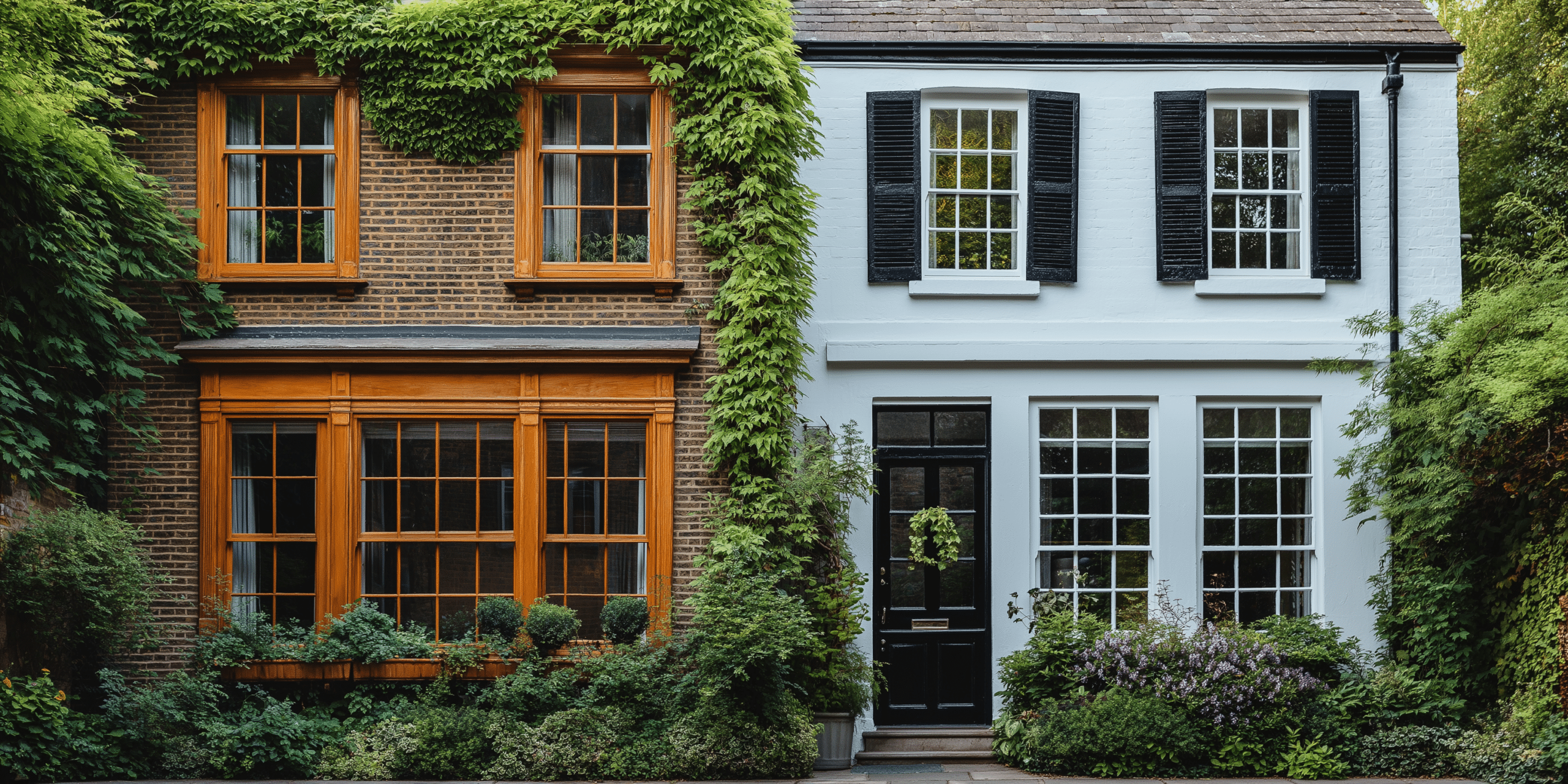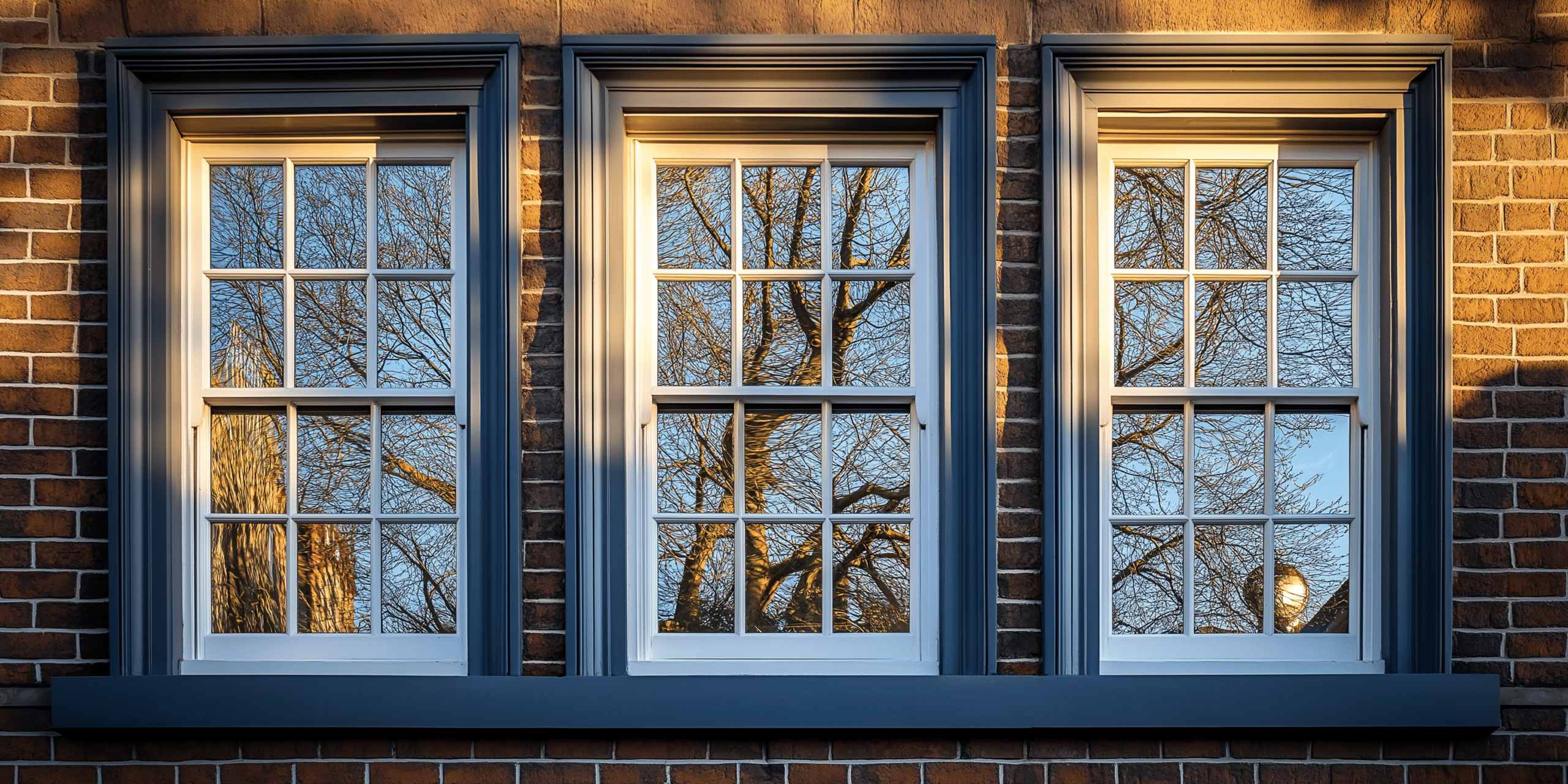Why Energy Efficiency Matters in Window Choice
Choosing energy-efficient windows is more than an eco-friendly decision; it directly impacts your household’s energy bills. With 80% of UK period homes retaining traditional sash windows, many homeowners prioritize styles that align with historic aesthetics. Both sash and casement windows provide reliable insulation options, though casement windows, with their tight seal, tend to offer marginally better thermal efficiency. If reducing energy use is high on your list, the fit and glazing quality of either window style can help maintain a comfortable indoor temperature year-round.
Enhance Your Home’s Curb Appeal with the Right Window Style
Windows significantly influence your home’s curb appeal. Sash windows, often seen in classic British homes, bring an enduring charm that’s hard to replicate. Casement windows, on the other hand, lend a sleek, modern look that suits contemporary homes. Each style can distinctly elevate your home’s aesthetic—whether you’re looking to preserve an era-specific design or create a bold, fresh appearance.
Sash vs. Casement: Durability and Maintenance Considerations
Homeowners value durable windows that require minimal upkeep. Sash windows, especially those built with modern materials, resist warping and are relatively easy to maintain. Casement windows, with fewer moving parts, generally hold up well over time and can be easier to clean. When paired with quality craftsmanship, either choice will provide lasting benefits, ensuring that maintenance is straightforward and hassle-free.
Choosing Between Sash and Casement Windows for Older Homes
For those with period homes, sash windows often remain the preferred choice due to their authenticity. However, casement windows offer a viable alternative, especially with custom designs that mimic traditional aesthetics. London Sash Window Experts can help assess your specific needs and guide you toward the best match for your home.
Ready to explore your options? Find out how London Sash Window Experts can assist in finding the perfect fit for your style and budget today.
What’s the Real Difference Between Sash and Casement Windows?
Unique Opening Mechanisms: How Sash and Casement Windows Operate
Both sash and casement windows offer distinctive styles and functional benefits. Sash windows use a sliding mechanism, allowing one or both sashes to glide vertically within the frame, creating a classic, balanced look. Casement windows, in contrast, hinge open outward from the side, enhancing ventilation by up to 10% compared to sash windows. This difference not only affects airflow but also impacts the overall aesthetic and energy efficiency of each window style.
Materials That Make a Difference
The material you choose influences durability, maintenance, and insulation. For sash windows, traditional options like timber deliver a timeless appeal suited to period homes, while modern uPVC and aluminium offer durability with reduced maintenance. Casement windows are also versatile, commonly available in uPVC and aluminium, which provide excellent insulation and energy efficiency. Each material’s unique properties ensure you can select a solution tailored to your lifestyle and design preferences.
Versatility for Traditional and Modern Homes
Sash windows remain popular for homes that aim to preserve historical character, seamlessly fitting into period-style aesthetics. However, they’re also suitable for modern interiors when crafted from contemporary materials. Casement windows lend a sleek, versatile look that pairs well with modern and minimalist designs, bringing a fresh touch to both classic and contemporary settings. Whether enhancing a traditional façade or adding clean lines to a modern home, both sash and casement windows offer exceptional versatility.
Ready to explore the best options for your home? London Sash Window Experts can help guide you through selecting the perfect style and material to match your vision.
How Design and Style Differ Between Sash and Casement Windows
Aesthetic Appeal for Traditional Homes
Sash windows are a hallmark of traditional British architecture, particularly favoured by 70% of UK conservation area homeowners who seek to preserve historical integrity. Their symmetrical design and vertical sliding mechanism complement period homes, lending a sense of timeless elegance. These windows are a popular choice for homeowners looking to retain or enhance the classic charm of Georgian, Victorian, and Edwardian architecture, offering a seamless fit with period aesthetics that many conservation guidelines support.
Style Versatility for Contemporary Homes
For more modern properties, casement windows bring a sleek, minimalist appeal. These windows open outward on hinges, providing clean, uninterrupted lines that fit seamlessly into contemporary home designs. While they’re highly compatible with new builds, casement windows can also be customised to blend into traditional homes, offering flexibility for those seeking a balance between modern functionality and classic style. The outward-opening mechanism of casement windows also allows for increased ventilation—up to 10% more than traditional sash designs.
Customisation and Curb Appeal Impact
Both sash and casement windows offer customisation options that can significantly elevate curb appeal and property value. Sash windows can be tailored with period-authentic details, such as Georgian bars, while casement windows allow choices in frame materials and colours, enhancing their compatibility with diverse architectural styles. With thoughtful customisation, either style can enhance a property’s character and, in many cases, its market value.
Explore which style aligns best with your vision and home architecture with London Sash Window Experts, where customisation meets craftsmanship to deliver the perfect aesthetic fit.
Which Window Type Offers Better Energy Efficiency?
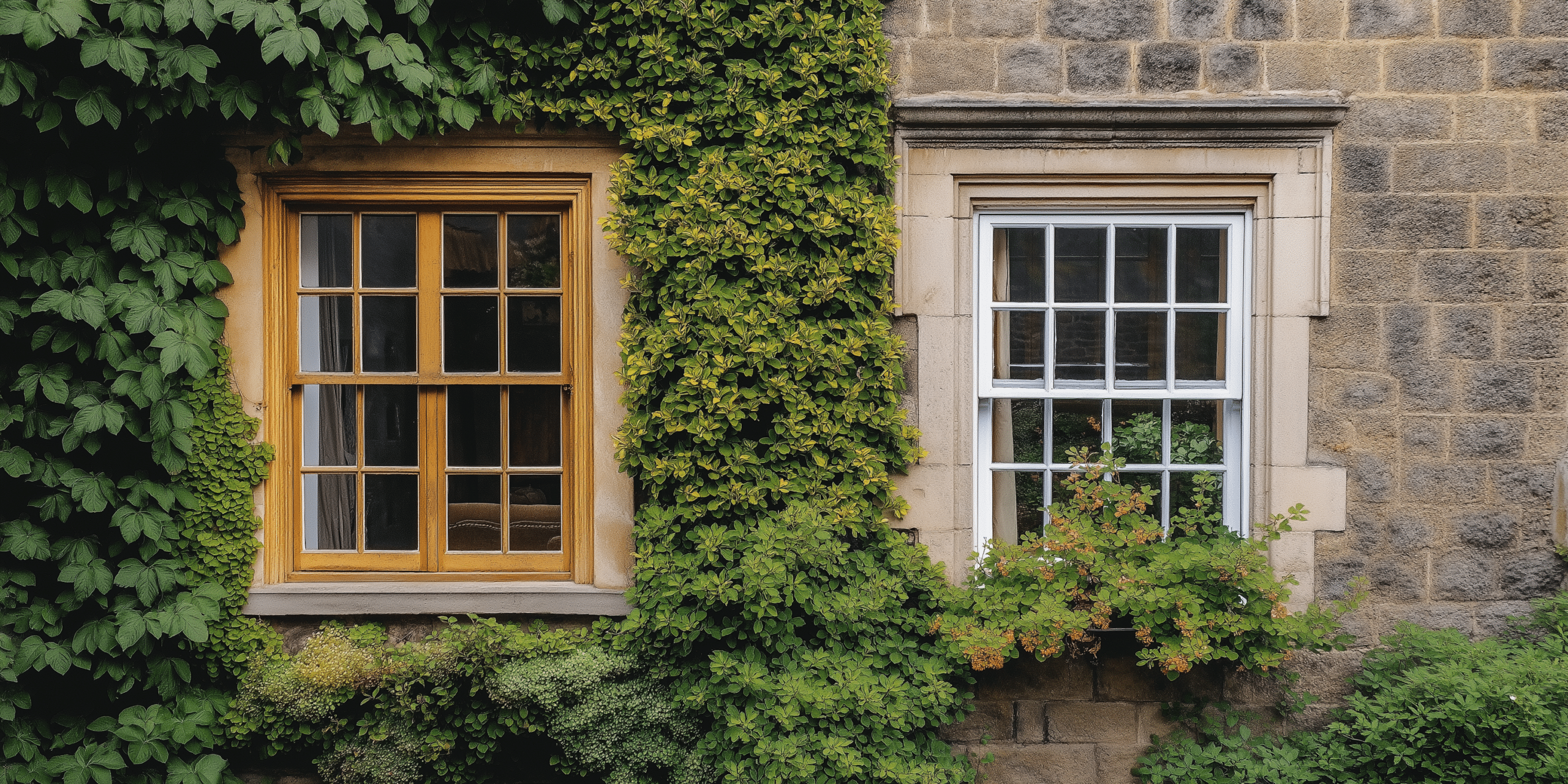
Energy Ratings for Sash and Casement Windows
Casement windows have a strong edge in energy efficiency, boasting a 20% higher rating due to their design, which enables a tighter seal against drafts when closed. This sealing mechanism helps maintain indoor temperatures, making casement windows particularly suited for energy-conscious homeowners. Sash windows, while generally less efficient, can achieve significant insulation improvements with certain upgrades, like double-glazing and draft-proofing options.
Enhancing Insulation with Material Choices and Weatherstripping
For both window styles, insulation performance can be enhanced through a careful selection of materials and weatherstripping. Double-glazed glass, low-E coatings, and sturdy frame materials like uPVC and composite wood improve insulation and block heat loss. Weatherstripping is an additional layer that can be customised to sash windows, effectively reducing drafts and elevating their insulation capacity to comparable levels with modern casement options. This combination offers users the best of both worlds—classic design with better thermal performance.
Environmental and Cost Benefits of Energy-Efficient Windows
Choosing energy-efficient windows is not only beneficial for reducing energy bills but also positively impacts the environment by reducing heating and cooling demands. With London Sash Window Experts, customising your windows for optimal energy savings becomes an easy choice, whether you prefer traditional sash or contemporary casement styles. By considering the materials and insulation options, you’ll ensure that your home stays comfortable year-round and that your investment in energy efficiency pays off.
Security Considerations: Which Window Type is Safer?
Comparing Security Features for Sash and Casement Windows
When it comes to security, casement windows hold a slight advantage with a 15% higher resistance to forced entry, thanks to their inward-locking mechanism. This design creates a tighter seal, making it challenging for intruders to pry open from the outside. Sash windows, while more traditional in style, can still be highly secure with the addition of modern locking systems and reinforced frames.
Locking Mechanisms and Frame Strength
Both window types offer a range of locking options that enhance security. Casement windows generally feature multipoint locks that secure the frame at several points, further increasing resistance to forced entry. Sash windows, on the other hand, benefit from high-quality, upgraded locks like key-operated stops and sash restrictors. Reinforcing sash window frames with robust materials, such as laminated or tempered glass, adds an extra layer of protection and durability.
Enhanced Security with Child-Safety Options
For families with young children, both sash and casement windows can incorporate child-safety features. Keyed locks or restrictors ensure that windows cannot open beyond a safe limit, providing peace of mind for parents. London Sash Window Experts offers various customisable options that balance child safety with accessibility, making it easy to adapt these windows to specific security needs.
With tailored solutions from London Sash Window Experts, choosing the right window for enhanced security becomes straightforward, combining aesthetic preferences with robust, reliable protection.
Maintenance Requirements: Long-Term Care for Sash vs. Casement Windows
Cleaning and Routine Maintenance for Each Window Type
Regular cleaning is essential for both sash and casement windows, although their designs require slightly different approaches. For sash windows, periodic attention to tracks and pulleys ensures smooth movement, while casement windows benefit from regular cleaning around hinges and locking mechanisms to maintain smooth operation.
Repairs and Long-Term Upkeep
Sash windows, known for their traditional charm, may require occasional cord or spiral replacements, typically every 10 years. This maintenance preserves the window’s ease of use and extends its longevity. Casement windows, on the other hand, are generally low-maintenance but benefit from periodic hinge checks to prevent wear and ensure the window remains properly aligned. Both window types can be upgraded with weather-resistant materials, which can further reduce upkeep needs.
Setting a Maintenance Schedule for Durability
Setting a simple maintenance schedule can keep your windows functioning and looking their best. We recommend annual checks for sash cords, especially if your windows are used frequently, and regular lubrication of casement window hinges to prevent stiffness. With a manageable upkeep routine, London Sash Window Experts ensures that the beauty and functionality of your windows remain intact for years to come.
Rely on London Sash Window Experts for guidance on keeping your windows in top shape, combining timeless appeal with practical care solutions that suit your home and lifestyle.
Airflow and Ventilation: Which Window Offers Better Fresh Air Circulation?
Comparing Ventilation in Sash and Casement Windows
Ventilation needs can significantly influence the ideal window choice for your home. Sash windows, especially double-hung designs, allow flexible airflow by adjusting both top and bottom sashes simultaneously. This dual-ventilation option promotes balanced air circulation and helps improve indoor air quality by enabling fresh air intake at the lower sash and warm air release at the top.
Casement windows, on the other hand, have unique ventilation benefits, thanks to their side-hinged design that opens fully, creating an effective cross-breeze. When positioned opposite each other in a room, casement windows can channel air from multiple directions, providing consistent fresh air circulation throughout your space.
Optimising Indoor Air Quality for Each Window Type
No matter your choice, optimising ventilation is possible with some seasonal adjustments. For sash windows, adjust the top sash to reduce drafts in colder months while keeping lower sashes open in warmer weather. Casement windows benefit from regular hinge checks to ensure they open wide, maximising airflow potential.
London Sash Window Experts can assist you in choosing the right window type for both style and ventilation needs, offering insights to maintain ideal indoor air quality year-round.
Which Window Type is More Eco-Friendly?
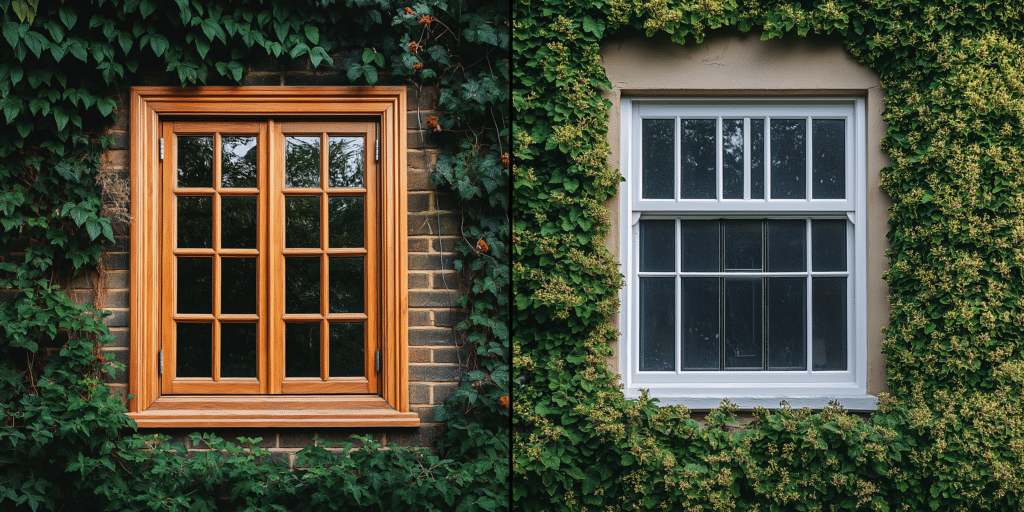
Eco-Benefits of Sustainable Sash and Casement Windows
Selecting windows with eco-friendly attributes is essential for those looking to reduce their carbon footprint. Sash windows, especially when made with sustainably sourced wood, reduce environmental impact by up to 30% compared to conventional timber casement designs. This reduction is possible thanks to responsibly managed wood sources, which provide a long-lasting and renewable material option that doesn’t compromise aesthetics or durability.
Casement windows also offer eco-friendly choices, especially when crafted with recyclable materials like aluminium. Aluminium frames, known for their durability and low maintenance needs, can be recycled repeatedly, adding to their eco-friendly appeal.
Choosing Certified, Long-Lasting Materials
When considering the lifespan and recyclability of your windows, certifications like FSC (Forest Stewardship Council) and PEFC (Programme for the Endorsement of Forest Certification) assure that the materials used meet global sustainability standards. London Sash Window Experts prioritise these certifications in our sourcing, ensuring your choice supports long-term environmental health.
By opting for sash or casement windows with certified, recyclable, and sustainable materials, you’re investing in a choice that reflects both durability and eco-conscious principles. Our team is here to guide you in selecting windows that align with your sustainability goals, ensuring a lower impact on the planet for years to come.
Essential Maintenance for Sash and Casement Windows
Routine Care and Inspection Tips
Maintaining your sash or casement windows with regular inspections, cleaning, and lubrication can enhance longevity by up to 20 years, while also optimising energy efficiency. To keep your windows in peak condition, consider these essentials:
- Seasonal Cleaning: Gently clean the glass, frame, and sashes with a mild solution to remove grime and prevent buildup. During spring, remove any winter residue; in autumn, prepare your windows for colder weather.
- Lubrication: Lightly oil the hinges on casement windows and the pulley systems in sash windows to reduce friction and improve functionality.
- Routine Inspections: Conduct visual checks to identify early signs of wear, such as peeling paint or loose seals, which can reduce insulation and energy performance. Catching issues early minimise repair costs.
Professional Services to Maximise Window Longevity
For homeowners aiming to maintain energy efficiency and pristine appearance, periodic professional servicing is invaluable. Our team at London Sash Window Experts offers comprehensive seasonal check-ups that go beyond basic cleaning, including:
- Sealing and Weatherproofing: Ensure your windows are fully weatherproofed to keep energy bills low.
- Expert Lubrication: Proper application of lubrication techniques enhances window operation, helping avoid wear and tear that can lead to costly repairs.
- Annual Energy Checks: These assessments evaluate insulation quality, helping you spot potential energy leaks that may require attention.
With routine care and professional oversight, you’ll keep your windows looking sharp and performing efficiently, while extending their lifespan and supporting your home’s energy goals.
Budgeting for Sash vs. Casement Windows
Cost Factors: Materials and Installation
Choosing between sash and casement windows involves evaluating both initial costs and material options. For sash windows, traditional timber materials tend to cost more upfront but offer durability and charm, whereas uPVC provides a budget-friendly alternative with good insulation properties. Casement windows, often featuring simpler designs, can reduce initial costs slightly. Common material choices include:
- Timber: Offers durability and classic aesthetics but comes at a premium.
- uPVC: Cost-effective and energy-efficient, making it a popular choice for budget-conscious homeowners.
- Aluminium: Sleek and durable, though typically higher in price due to material resilience.
Energy Savings and Long-Term Value
Investing in energy-efficient windows can offer substantial returns. Homeowners could recoup up to 70% of installation costs over time through reduced energy expenses. Energy-efficient features, like double glazing or specially coated glass, help maintain indoor temperatures, reducing heating and cooling needs year-round. Here’s what to consider:
- Initial Cost vs. ROI: While energy-efficient sash or casement windows might cost more initially, their insulating benefits lower energy bills, offering a significant return on investment.
- Incentives: Look for potential rebates or financial incentives available for energy-efficient installations, which can offset upfront costs.
At London Sash Window Experts, we offer expert advice tailored to fit both your budget and energy-saving goals. With a balanced choice between material quality and long-term savings, your window investment can enhance your home’s comfort and efficiency.
What to Know Before Installing Sash or Casement Windows
Precision Measurements: The Key to a Perfect Fit
For a successful installation, precise measurements are essential. Accurate sizing ensures a seamless fit, helping to prevent gaps that could lead to energy loss or moisture ingress. This step becomes even more crucial for older properties, where walls may be uneven. At London Sash Window Experts, our team prioritises exact measurements, recognising that each home presents unique requirements, especially when dealing with older construction features.
Professional Installation vs DIY: Choosing the Right Path
Opting for professional installation offers distinct advantages over a DIY approach. Professional installers bring experience and equipment tailored for both sash and casement windows, resulting in up to 15% higher energy efficiency. DIY projects often miss critical steps that impact performance, from secure frame placement to the correct use of insulation materials. For the best results, especially in variable weather conditions that can affect drying and sealing, our certified team ensures each installation withstands both time and elements.
With London Sash Window Experts, you’re not just investing in windows; you’re securing a durable, energy-efficient upgrade with every fitting.
Start Your Journey to the Perfect Windows with London Sash Window Experts
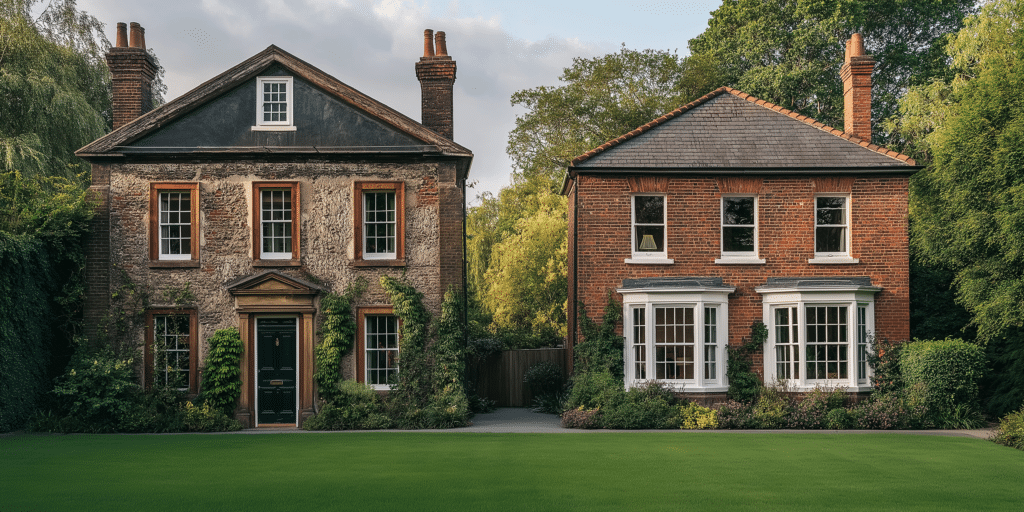
Why a Consultation Matters: Expert Guidance and Customised Choices
When it comes to finding the right window style for your home, a consultation with our experts can make all the difference. With London Sash Window Experts, you’ll gain personalised advice tailored to your needs, lifestyle, and home architecture. Our consultations are designed to ensure every detail aligns with your vision, making the decision process simple and rewarding. We’re here to answer questions, showcase the best materials and designs, and guide you confidently toward a choice that elevates your space.
High Satisfaction, Tailored to Your Needs
Join the 95% of customers who report greater satisfaction after consulting with our experts before making their window selection. Whether you’re looking to preserve a traditional aesthetic or enhance energy efficiency, our team is dedicated to helping you achieve your goals. From initial advice to detailed, customised recommendations, we’re proud to be London’s trusted choice for sash window expertise.
Book a free consultation today and discover how easy it is to bring your ideal windows to life with expert guidance, seamless communication, and exceptional results.
Frequently Asked Questions
Are sash windows energy-efficient?
Modern sash windows are designed with energy efficiency in mind. With double glazing, they can reduce heat loss by up to 40%, helping you save on heating costs during colder months. At London Sash Window Experts, we offer high-quality materials and construction that work to keep your energy bills lower and your home comfortable.
Which window style is best for noise reduction?
Both sash and casement windows offer soundproofing options, but double-glazed casement windows excel in noise reduction, minimising external sounds by up to 30%. This feature makes casement windows ideal for those living in busier urban areas, creating a quieter, more serene indoor environment.
How durable are sash vs. casement windows?
Durability depends on materials and maintenance. Casement windows, made from robust materials like uPVC and aluminium, can last up to 40 years with proper care, while timber sash windows, when well-maintained, can last up to 100 years. Both options represent excellent long-term investments when installed and maintained by professionals.
Are sash or casement windows better for home security?
Security is a priority in both window styles. Our modern sash windows feature robust locking mechanisms, while casement windows can be securely locked from the inside, making break-ins more challenging. Enhanced security features ensure that your home remains safe with either choice.
Do sash windows work for modern homes?
Absolutely. Sash windows come in a variety of finishes and frame colours, making them suitable for both traditional and contemporary home designs. With styles to match any architectural preference, sash windows can easily integrate into modern aesthetics without sacrificing character.
Can I replace my current windows with sash or casement options?
Yes, replacing your existing windows with new sash or casement options is feasible and often beneficial. Retrofitting not only improves energy efficiency but can also increase your home’s value by enhancing its curb appeal and overall performance.
Connect with London Sash Window Experts to discuss which window style best suits your needs and explore options for your property upgrade.
